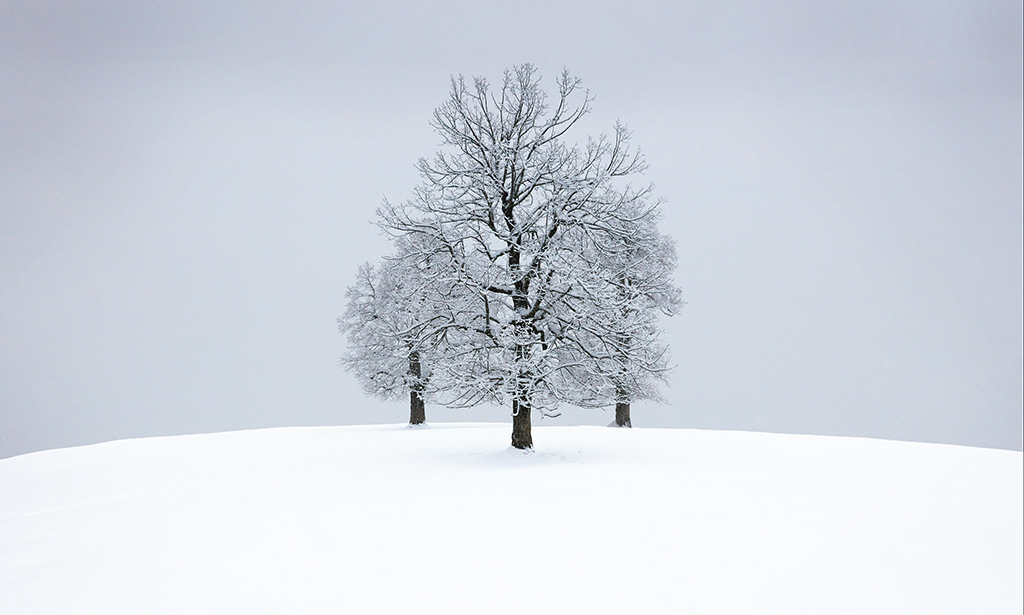
Silence (2020)
Snow reduces sound because snowflakes consist of tiny, branched ice crystals with cavities, at least until the snow freezes. This is not only a human perception but a proven effect. Acousticians have measured the effects of falling snowflakes.
William Shakespeare (1564–1616) saw another component: “Winter tames man, woman and beast,” he wrote in The Taming of the Shrew. Centuries later, between the end of World War II and the beginning of the Cold War, philosopher Max Picard wrote, “Nothing has changed the nature of man as much as the loss of silence.” This is debatable, of course.
Here is a belief without any scientific justification, based on what Shakespeare wrote about taming and Picard about silence: Slowing down our voices and our lives’ rhythms would protect the planet from us. I am not alone with that opinion. Dahr Jamail, for example, the author of The End of Ice, wrote, “The frenetic pace of contemporary life is having a devastating impact on the planet.”
What would happen if humanity began to follow the advice of Shakespeare and Picard? What would happen if we all started to rein in our egos and thus lower our voices, if we tried to slow down our pace? Would that be so bad?
Energy Innovation is a nonpartisan energy and climate policy think tank based in San Francisco. Its CEO, Hal Harvey, said in an interview with the New York Times, “Respect science, respect nature, respect each other.” Solving the most significant issues, such as the climate crisis, requires a global “Yes We Can.” Instead, we are still confronted with an attitude of “me first.”
Against all odds, I still believe in the good of people and, therefore, in democracy, and I believe in Article 1 of the United Nations’ Universal Declaration of Human Rights, which says, “All human beings are born free and equal in dignity and rights.”
